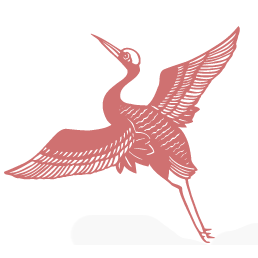
Acupuncture for Common Conditions
Acupuncture is a safe, effective treatment that has been practised
and studied for over 2,000 years in China and other parts of Asia
It stimulates circulation, clears blockages,
and offers a drug-free approach with minimal intervention
People often find acupuncture beneficial
for a wide variety of issues, including:
Aches, pains and injuries
Allergies (e.g Hayfever)
Anxiety
Arthritis & rheumatism
Back pain
Cancer treatment support
Depression
Digestive issues (e.g. Diarrhoea, constipation & IBS)
Emotional issues (e.g. Grief, anger & worry)
Erectile dysfunction
Gynaecological issues
Headaches & migraines
Low energy
Menstrual and fertility issues
Menopausal symptoms
Miscarriage: threatened and recurrent
Peripheral neuropathy
Pregnancy symptoms
Respiratory issues(e.g. Asthma, sinusitis & rhinitis)
Sciatica
Skin issues (e.g Eczema & psoriasis)
Sleep problems
Stress
British Acupuncture Council - Evidence Fact Sheets A-Z
NHS Choices - Common uses of acupuncture
Information for Mental Health support within East Sussex
What Is Acupuncture & How Does It Work?
Classical Chinese Medical Framework
In classical Chinese Medicine, your body is understood as a living system of circulation that contains, sustains and protects life. This system is described by the concept of jingluo (經絡), which translates as “channels and network vessels.” The jingluo describe the locations and circulations of blood and vital substances - following the topography of the body - to nourish organs, tissues, and soft structures of the body. When circulation moves freely, we are healthy and feel vital. If this flow becomes blocked, weakened, or disrupted, symptoms can arise. Disturbances often have their roots in physical causes such as injury or illness, or from emotional and psychological factors such as stress, emotions or patterns of thought.
Musculoskeletal pain, is often linked to what Chinese Medicine calls the Tendino-Muscular Meridians (TMM) — these describe pathways that influence muscles, tendons, and ligaments. More broadly, muscular skeletal and some neuropathic conditions may be seen as the result of imbalances within these specific sections of the system.
Acupuncture seeks to restore balance by inserting very fine (0.2mm thin) needles into specific points xue (穴) within these circulations (channels). Treatment may strengthen weak areas, release tension, clear stagnation, and harmonise circulation — supporting both physical and emotional wellbeing.
Modern Understanding
Contemporary research suggests that acupuncture works through multiple mechanisms:
- Stimulating the release of endorphins and other natural pain-relieving substances
- Modulating nerve signal transmission
- Improving local blood circulation
- Reducing inflammation around damaged nerves
- Activating the body's natural healing responses
Together, these traditional and contemporary views highlight acupuncture’s unique ability to engage both the body’s physiological processes and its deeper patterns of health.*
During an Initial Consultation we go through your medical history and combine these with CM diagnosis to develop an understanding of what is going on. Alongside discussing any specific symptoms, diagnostic techniques, such as channel palpation and pulse & tongue diagnosis, are used to identify issues within your system.
How much treatment do I need?
Treatment is recommended about every 1 to 2 weeks, while you have symptoms.
Once healthy circulation is restored, you may be advised to have treatment from time-to-time to keep your system working well, depending on the origin and nature of the issue.
Where do the needles go?
We generally use a combination of ‘local’ and ‘distal’ points. ‘Local’ points are on located near the site of any issues we wish to address. ‘Distal’ points are on your arms and legs (towards the ends of the Channels) below your elbows and knees.
I will always discuss what points I am going to use first and make sure that you feel comfortable.
 About Rick Mudie
About Rick Mudie
BSc (Hons), BSc (Oriental Med), MBAcC
Rick is a traditional Chinese acupuncturist with over 25 years clinical experience.
He has a BSc degree from Edinburgh University, were he studied Psychology and Anthropology and a BSc (Hons) in Oriental Medicine from Brighton University from it's affiliated college 'The International College of Oriental Medicine' (ICOM), the UK's oldest acupuncture college.
He is currently a Lecturer at ICOM, where he was a Course Leader & Clinical Supervisor for many years. He is an experienced member of the British Acupuncture Council (BAcC).
Read more about Rick.



